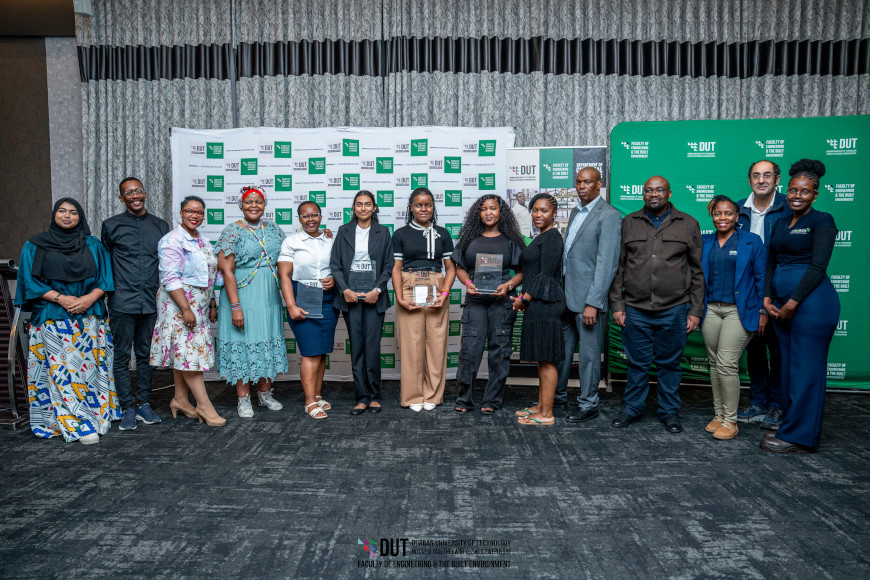The Faculty of Engineering and the Built Environment, Department of Chemical Engineering and Pulp and Paper at the Durban University of Technology (DUT) recently hosted a successful ReThinking Campus Solid Waste: A Green Engineering Symposium. The event, held at Coastlands Hotel in Musgrave, Durban, brought together industry experts and students to share knowledge and to showcase innovative projects focused on solid waste management.
In his opening remarks, Dr Peterson Thokozani Ngema, Acting Acting Head of Department for Chemical Engineering, congratulated the students on their achievements and emphasised the importance of the symposium as a platform for students to showcase their work and to demonstrate the DUT philosophy. He noted that the symposium was a significant milestone in promoting sustainable solid waste management practices and encouraged students to continue developing innovative solutions.
Professor Sudesh Rathilal, Acting Dean of the Faculty of Engineering and the Built Environment, highlighted the significance of the symposium in creating solutions for society. He encouraged students to think beyond the university and to develop solutions that could be implemented in their communities. “The goal is to create a better world, and it starts with initiatives like these,” he said.
Dr Innocentia Mkhize, Deputy Head of Chemical Engineering and Project Leader/Lecturer for the Green Engineering Module for the Bachelor of Engineering Technology Honours class, provided an overview of the project. Using innovative pedagogies, including Project-Based Learning and Design Thinking, students were tasked with developing a communication strategy for solid waste management at the S-Block of Steve Biko Campus. The challenge required them to design a clear and effective awareness system, engage stakeholders, and pitch a practical, implementable solution to promote sustainable solid waste management practices. Dr Mkhize emphasised the societal impact of the project within DUT, highlighting how students’ work contributes to real-world solutions and community engagement.
Industry expert Ms Nondumiso Mlambo from Mpact Paper shared her experience in transforming waste management processes and emphasised the importance of environmental sustainability in engineering. “As engineers, we have a responsibility to protect the environment and promote sustainable practices,” she said. Ms Mahlogonolo Precious Mafela, a Junior Process Engineer at Mpact Paper, also addressed the students, encouraging them to pursue innovative solutions and highlighting the importance of collaboration between academia and industry.
The students designed a clear and effective awareness system, engaged with stakeholders, and pitched practical, implementable solutions to a diverse panel of members to promote sustainable solid waste management practices. They presented their projects in groups, showcasing innovative approaches such as improved waste management systems and sustainable practices, highlighting the students’ ability to develop practical solutions to real-world challenges.
In his closing remarks, Mr Nceba Antony Hoto thanked the students, industry partners, and organisers for their participation and support. He emphasised the importance of events like these in promoting innovation and collaboration in addressing environmental challenges.
The symposium marked a significant milestone in promoting sustainable solid waste management practices and highlighted the importance of innovation and collaboration in addressing environmental challenges. It demonstrated the potential for students to develop practical solutions to real-world problems and the importance of industry-academia partnerships in driving innovation.
Pictured: Attendees at the symposium.
Nontobeko Ngcobo

